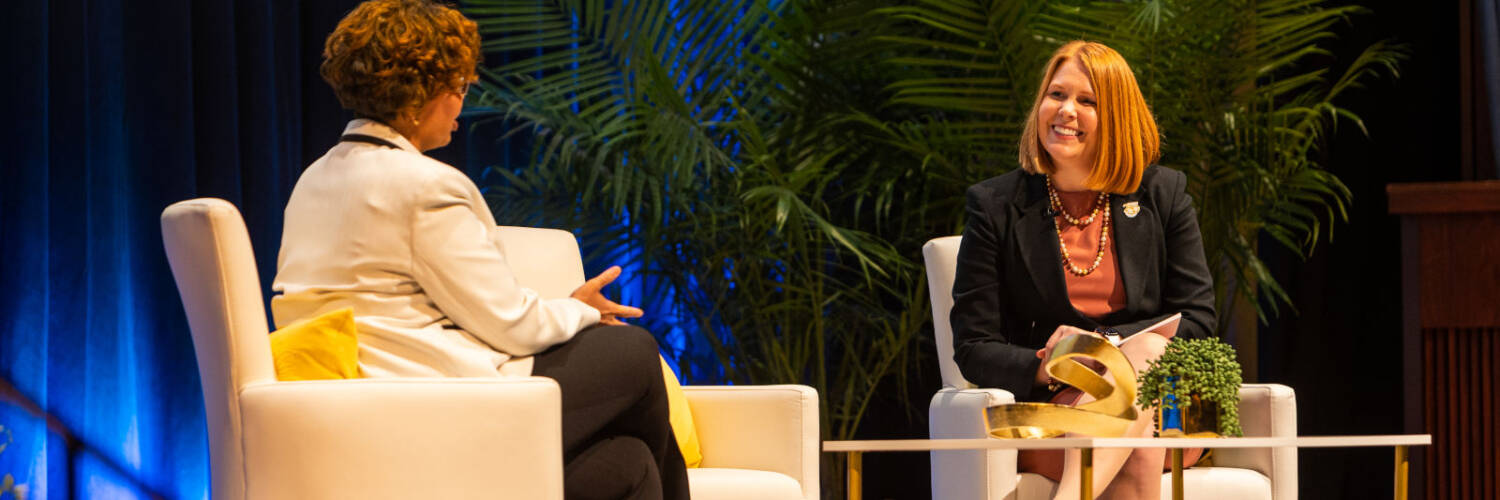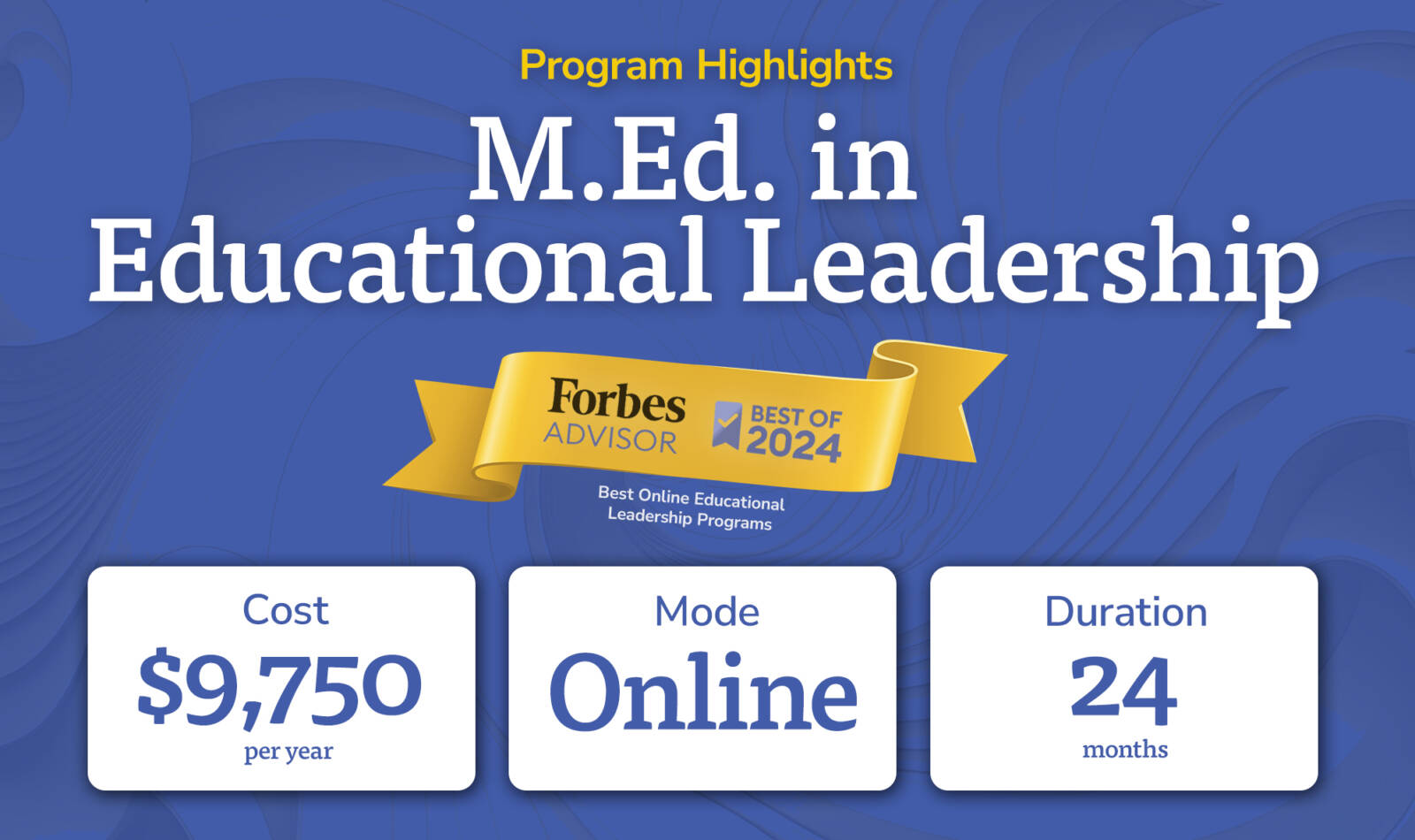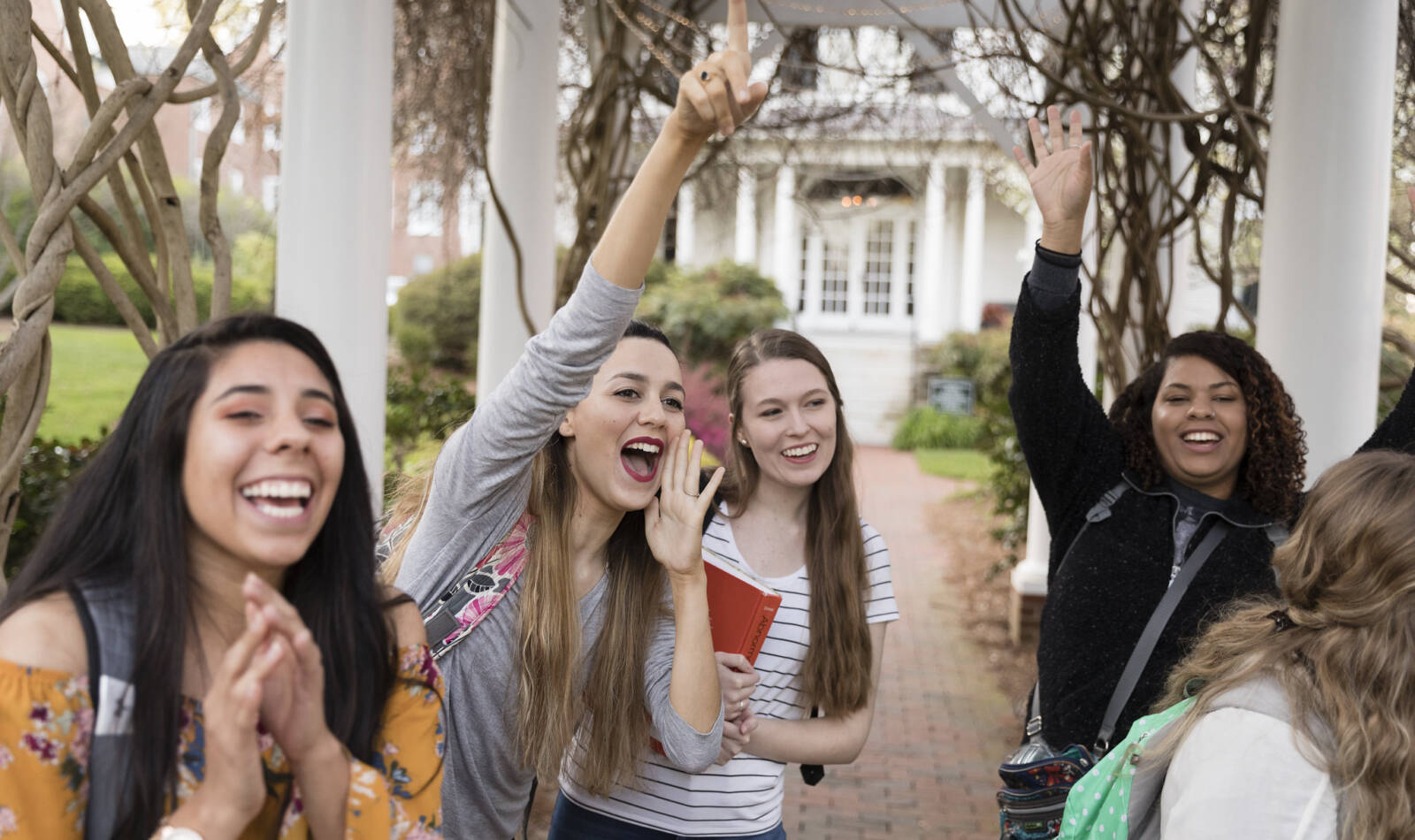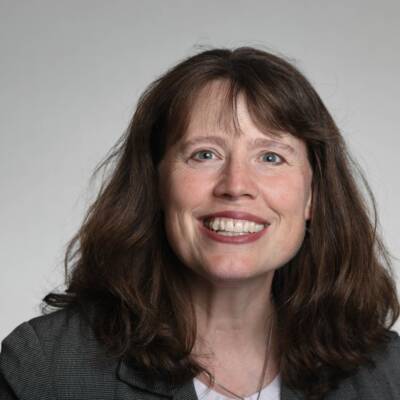
M.Ed. in Educational Leadership
Salem offers a master of education in educational leadership in a fully online format that integrates opportunities to connect with faculty and a cohort of colleagues through digital platforms, face-to-face Saturday residencies and a range of technologies that span our distances.
Tailored to meet working educators’ needs for flexibility, this program also provides the opportunity to develop meaningful relationships with fellow students and faculty. It is designed as an inclusive leadership opportunity for individuals seeking to become principals as well as educators wishing to pursue other leadership roles within a school and district such as assistant principal, curriculum facilitator, instructional coach and district administrator.




